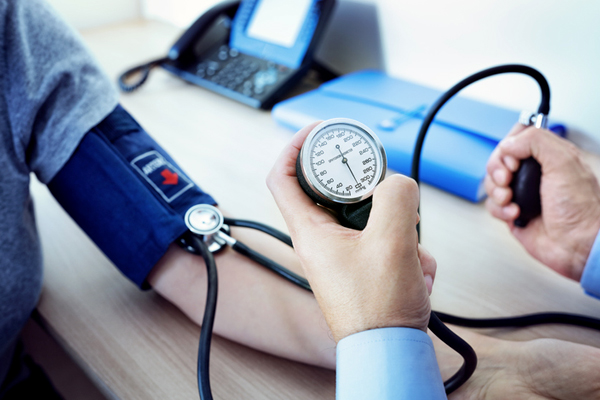Resistant Hypertension

Resistant Hypertension
What is Resistant Hypertension?
Resistant hypertension is a form of high blood pressure (hypertension) that remains difficult to control despite the use of three or more antihypertensive medications, including a diuretic, all taken at optimal doses. Individuals with resistant hypertension face a higher risk of cardiovascular complications, such as stroke, heart attack, and kidney failure, making effective management critical.
Symptoms of Resistant Hypertension
Resistant hypertension may not produce noticeable symptoms, similar to other forms of high blood pressure, which is why it is often referred to as the "silent killer." However, in some cases, individuals may experience:
- Severe headaches
- Shortness of breath
- Chest pain
- Fatigue or confusion
- Irregular heartbeat
- Vision problems
Causes and Risk Factors
Several factors can contribute to resistant hypertension, including:
- Underlying medical conditions: Chronic kidney disease, obstructive sleep apnea, or adrenal gland disorders can exacerbate blood pressure.
- Obesity: Being overweight can increase the risk of resistant hypertension.
- Excessive alcohol consumption: Heavy drinking can raise blood pressure and interfere with medications.
- Medications: Some medications, such as non-steroidal anti-inflammatory drugs (NSAIDs), certain antidepressants, and oral contraceptives, may contribute to high blood pressure.
- Diet and lifestyle: High sodium intake, a sedentary lifestyle, and poor dietary habits can worsen hypertension.
- Age and genetics: Older adults and individuals with a family history of high blood pressure are at greater risk.
Diagnosis of Resistant Hypertension
Diagnosing resistant hypertension involves thorough medical evaluation, including:
- Blood pressure monitoring: Repeated readings over time to confirm consistently high blood pressure despite treatment.
- Medication review: Ensuring that medications are being taken as prescribed at optimal dosages.
- Identifying secondary causes: Screening for underlying health conditions that could be contributing to the resistant hypertension.
Additionally, doctors may recommend ambulatory blood pressure monitoring, where a portable device is worn to measure blood pressure over 24 hours. This helps differentiate true resistant hypertension from "white coat hypertension" (high readings only in a clinical setting).
Treatment Options for Resistant Hypertension
Treating resistant hypertension typically involves a combination of lifestyle changes, medication adjustments, and, in some cases, advanced medical procedures. Strategies include:
-
Medication optimization: Increasing the dosage or adding different classes of antihypertensive drugs, such as aldosterone antagonists, calcium channel blockers, or beta-blockers, to control blood pressure.
-
Lifestyle modifications:
- Low-sodium diet: Reducing salt intake can have a significant impact on blood pressure.
- Regular exercise: Engaging in moderate physical activity can help lower blood pressure and improve overall cardiovascular health.
- Weight management: Losing excess weight can reduce the strain on the heart and help lower blood pressure.
- Limiting alcohol intake: Reducing or eliminating alcohol consumption is crucial for managing resistant hypertension.
- Quitting smoking: Smoking can narrow arteries and increase blood pressure, so cessation is vital.
-
Treating underlying conditions: Addressing secondary causes, such as sleep apnea or hormonal imbalances, can improve blood pressure control.
-
Innovative treatments: In cases where resistant hypertension remains uncontrolled, new treatments such as renal denervation (a minimally invasive procedure that targets nerve activity in the kidneys) or baroreceptor activation therapy may be considered.
The Importance of Managing Resistant Hypertension
Uncontrolled resistant hypertension significantly increases the risk of life-threatening complications, including heart failure, kidney disease, stroke, and damage to vital organs. For this reason, close monitoring and ongoing care with a specialized healthcare team are essential.